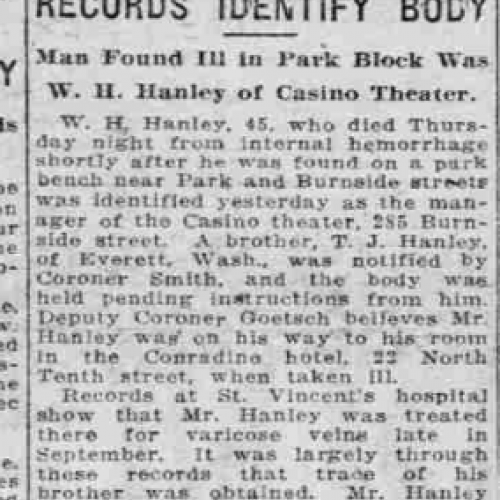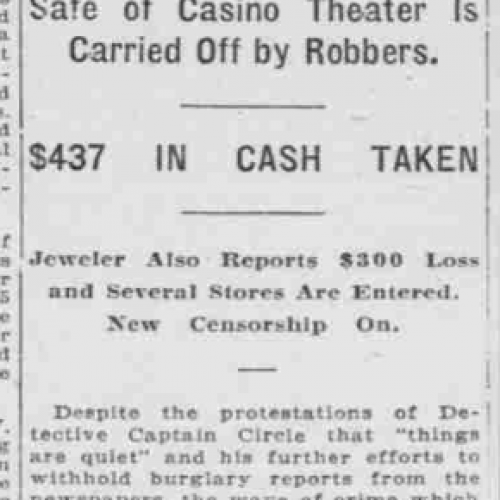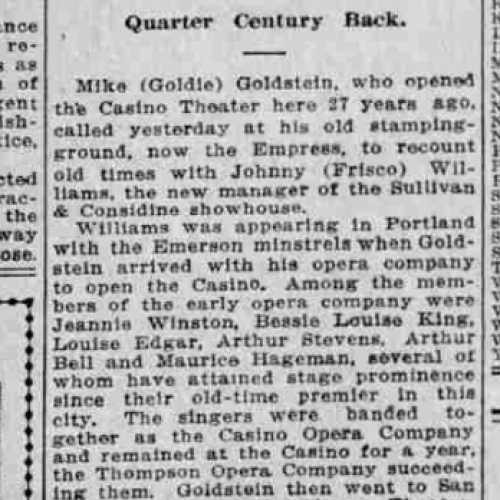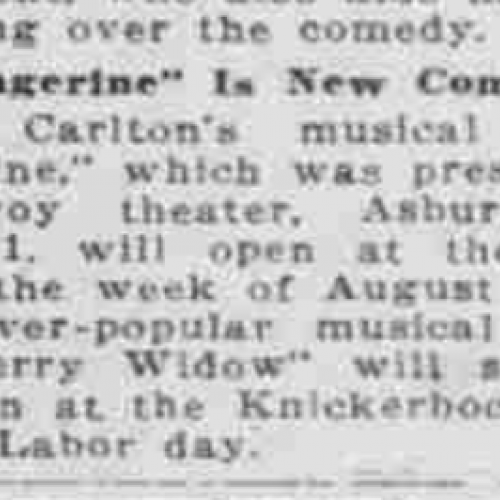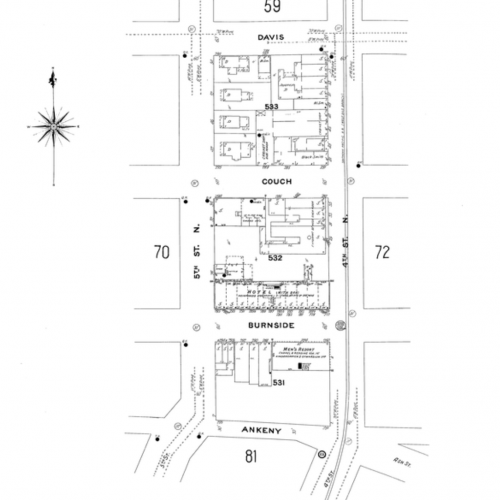The Casino Theater opened on July 14th, 1912. It was located on 4th & Burnside streets in Portland, Oregon. The very small theater was situated inside the Hotel Philip, which is now known as the Grove Hotel and still exists today. However, it was in October of 1930 that the city of Portland decided to widen Burnside street, forcing Hotel Philip to scale back their building's size by almost 20 feet, demolishing the Casino Theater all together. In the photo listed below the Casino Theater is clearly seen nestled into the Hotel Philip. Sadly, the photo in the right column depicts the very same street and hotel two years later after the demolition/remodel and the loss of the Casino Theater (5).
The Casino was very small and relied mostly on the patrons of the hotel for business than anything else. There were little to no advertisements published in the newspaper promoting the theater or any high class acts to be shown. There was one small fragment of an article found in The Sunday Oregonian that discussed a musical comedy known as "Tangerine." It was shown in another theater known as the Savoy as well as Asbury Park before making a short appearance at the Casino. Not much else is known about the shows, acts, or films played at the Casino but speculation suggests that most often times they were small, local productions similar to the "Tangerine"(4).
An unexpected aspect of the theater was its- what appeared to be, extreme struggle with crime. In July of 1919 the Casino's safe was stolen by robbers and was never recovered. It was a loss of $437, which today is equal to around $6,500. That was a significant amount of money for the time and would have detrimental to the theater's finances. It was also written in the report that a jewelry store on the same block as well as several other shops were robbed the same night, with the jewelers losing $300. According to the article, a "wave of crime" had been sweeping the area and the police were "helpless" (2).
On August 30th, 1920 the Casino Theater's manager was found deathly ill on a bench in the park about a block away from the theater. W.H. Hanley was 45 and died in the hospital Thursday night, three days after being found. He had been continuously internally bleeding, there was no clear answer in the article as to what may have caused his injuries. Unfortunately there is a gap in the historical record and it is unclear as to who became manager for the next 10 years after Mr. Hanley's death (1).
